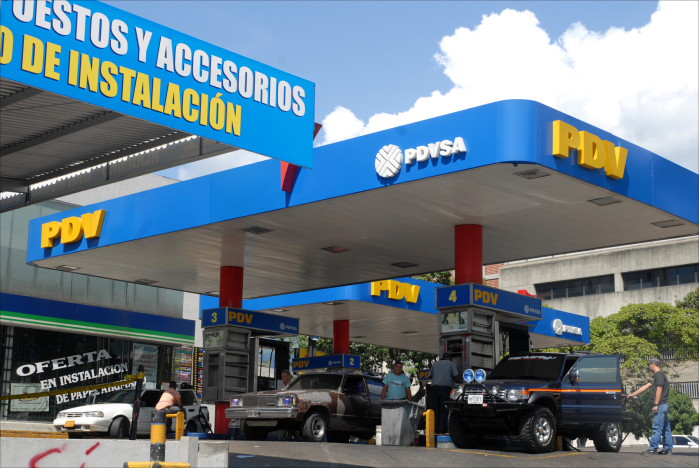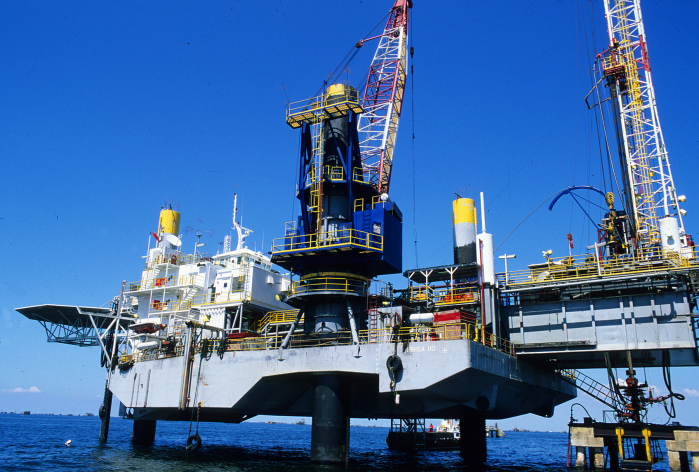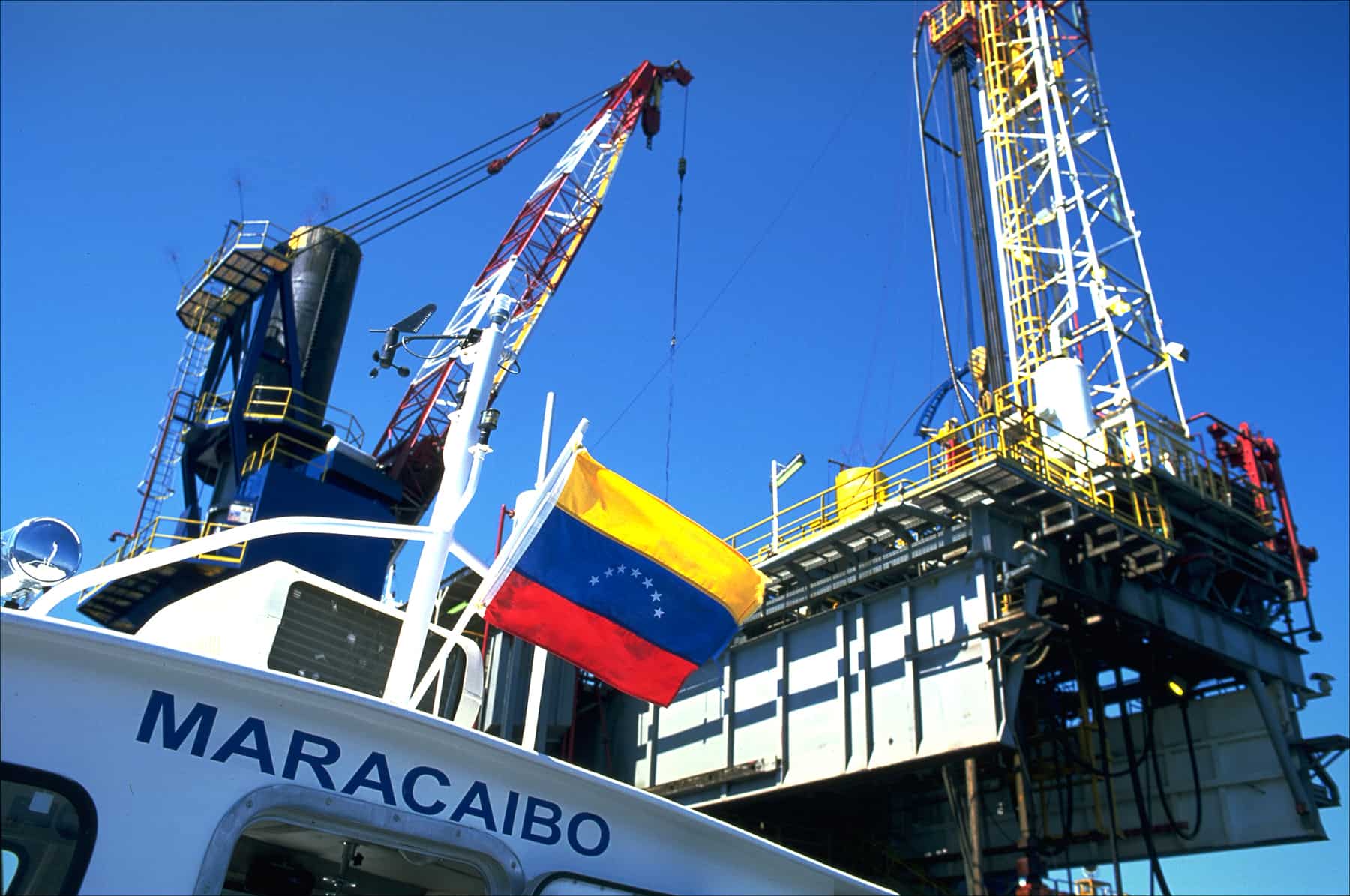WASHINGTON, D.C. – As Costa Rica debates the pros and cons of joining the Venezuelan oil financing program Petrocaribe, energy experts meeting in Washington warned that countries already addicted to Petrocaribe’s cheap oil could face catastrophe if the Venezuelan economy under President Nicolás Maduro implodes.
Most of Petrocaribe’s 17 members are Caribbean island nations, but the roster also includes three Central American countries: Belize, El Salvador and Nicaragua. A fourth, Guatemala, joined in July 2008 but pulled out last November after complaining that Venezuela had changed the terms of the deal, making its oil exports less attractive.
In addition, Honduras was invited this February to rejoin Petrocaribe after having been suspended by Venezuela in 2009. Prior to that suspension – which followed the overthrow of then-President Manuel Zelaya – Honduras was receiving 20,000 barrels of oil daily to fuel its electricity power generation plants. Thanks to Petrocaribe, the Zelaya government bought that oil on a deferred basis, paying 60 percent within 90 days and the remaining 40 percent over a 25-year period, at an interest rate of only 1 percent.
Yet Petrocaribe’s largesse cannot continue forever, suggested Jason Marczak, deputy director of the Atlantic Council’s Adrienne Arsht Latin America Center.
“What happens to the 17 countries who are members of this program if Caracas pulls back the generous credit subsidies it gives members to help them import its crude oil products?” Marczak asked. “This is a not-so-distant possibility given Venezuela’s economic situation and slowing oil production, but it’s one Caracas would certainly like to avoid. This has all the makings of an energy crisis brewing off our shores.”
On July 16, the Washington-based think tank released a 24-page study, “Uncertain Energy: The Caribbean’s Gamble With Venezuela.” To mark the occasion, it hosted a panel discussion featuring three experts: David Goldwyn, the study’s author and a former U.S. State Department coordinator of international energy affairs, Jorge Piñón, who heads the Center for International Energy and Environmental Policy at the University of Texas-Austin, and Jed Bailey, managing partner at Boston-based Energy Narrative.
“It’s almost 10 years since Venezuela announced the Petrocaribe program,” Goldwyn said. “Petrocaribe sells oil and products at market benchmarks, but also provides financing for governments, giving them long terms and low down payments so the countries can take that oil and use the proceeds of those sales either to invest or save, or more likely, to use for budget support. It’s a credit financing program at its core, and for Venezuela, it’s been an enormous political success.”
However, for Petrocaribe members themselves, the results have been “decidedly more mixed,” Goldwyn told his audience, which included the ambassadors of Nicaragua, Suriname and Trinidad and Tobago.
“Buying crude oil and products on cheap credit has given these countries an enormous debt burden, in some cases 10 to 20 percent of their GDP,” he said. Even more ominously, he said, “Petrocaribe has delayed the migration away from fuel oil and diesel for power generation to cleaner fuels. And the problem with using a high-cost fuel oil is that it makes the cost of electricity extremely high. The average throughout the Caribbean is 33 cents per kilowatt-hour, while the U.S. average is a dime. That’s part of the reason why Caribbean economies are not competitive.”
Yet it’s difficult for these countries to kick the habit.
“Whether they want to or not, Petrocaribe countries may not have a choice,” Goldwyn warned. “With oil production declining and Venezuela unable to import diapers, toilet paper and basic staples, it’s hard to justify selling oil literally for beans. The risk of a complete cutoff is actually quite low, but the impact on these economies could be catastrophic.”

Interestingly, although the Dominican Republic, Jamaica and Nicaragua comprise only three of Petrocaribe’s 13 active member states, in 2012 they accounted for just over 80,000 barrels per day of the 121,000 that Petrocaribe exported. The D.R. and Jamaica both operate oil refineries that without huge injections of capital from state-owned Petróleos de Venezuela (PDVSA) would have closed long ago.
Piñón, a Cuban-born energy expert who has followed the scheme since its inception, said the challenge for PDVSA today is purely cash flow.
“PDVSA has converted itself into a politicized institution of the state, and that’s what makes the whole situation critical,” he said, noting that Venezuela’s state oil monopoly hasn’t published financial reports for years. “The Achilles’ heel of Venezuela today is cash flow. The crude oil basket price is below $100 a barrel, and they’ve been stuck at 2.7 million barrels a day since 2005.”
At present, Venezuela exports 45,000 barrels per day of crude oil to Petrocaribe countries, and an additional 76,000 bpd of refined products like gasoline. Venezuela also exports 85,000 bpd of crude and 6,000 bpd of refined products to Cuba through a separate Convenio Integral de Cooperación Cuba-Venezuela (CIC).

“Petrocaribe is an extremely generous program in that it offers financing at better terms than the IMF or the World Bank,” conceded Goldwyn. “So it’s really hard for these countries to give that up. It’s a political problem for governments in power to volunteer a significant hole in their budgets without knowing how they’re going to fill that hole.”
It also obligates smaller Caribbean and Central American countries to back Venezuela politically, even when they otherwise might not have. In March, for example, the Organization of American States passed a declaration supporting the Maduro government’s efforts to end Venezuela’s political stalemate, and only the United States, Canada and Panama dared to oppose the resolution.
“When you look at the cash flow situation they’ve gotten themselves in, I just don’t see the political value it has given Venezuela,” Piñón said. “Maybe in some regional forums like the OAS they’ve gotten support, but at the end of the day, I ask myself whether these countries received major diplomatic and political benefits out of it.”
What really concerns Piñón, he said, is what happens in the short term.
“There is going to be a 911 call when there’s a change of policy in Caracas,” he warned. “Literally, the lights could go out in some of these countries.”
To guard against that, all three panelists argued that the U.S. needs to come up with a strategy to wean Petrocaribe members off cheap oil and get them to increase consumption of liquefied natural gas (LNG) and renewable energy sources.
“We believe the Caribbean countries should follow the trend of Mexico, in reforming the electricity sector, and to convert from fuel oil to natural gas. If Caribbean economies can make this conversion, they can lower their carbon footprints, lower the cost of electricity and make their economies more competitive,” said Goldwyn.

Pro-region, not anti-Venezuelan
The Inter-American Development Bank recently hired Bailey’s firm to prepare two pre-feasibility studies – one for the Caribbean and one for Central America – on reducing the region’s dependency on imported crude. The answer, he said, is to finance the conversion of existing power plants to burn LNG instead of fuel oil.
“We believe gas could be brought in at a cost of $10-14 per million BTU – depending on the size of the market and where it’s being sourced from – compared to $17-20 for fuel oil and $20-25 for diesel,” he said. “There’s a strong potential to reduce costs if you can convert power plants to burn natural gas, and negotiate favorable terms.”
Bailey said 45 to 50 percent of the fuel oil in the Caribbean and Central America is burned for power generation, making it relatively easy to convert to LNG because the main fuel buyer is a central entity, such as a utility, rather than thousands of consumers.
Goldwyn said the Obama administration’s Caribbean Energy Security Initiative, (CESI) launched with great fanfare last month by Vice President Joe Biden, doesn’t even mention the words “natural gas.”
“We have to come up with a much more robust package than CESI has so far,” he complained. “The irony is that actually reducing Petrocaribe would be a win-win for both Venezuela and the region. This is an issue the United States really needs to care about, but it’s incumbent on us to show that our Caribbean policy is more pro-Caribbean than anti-Venezuelan.”
Recommended: How one island powered itself with a volcano






